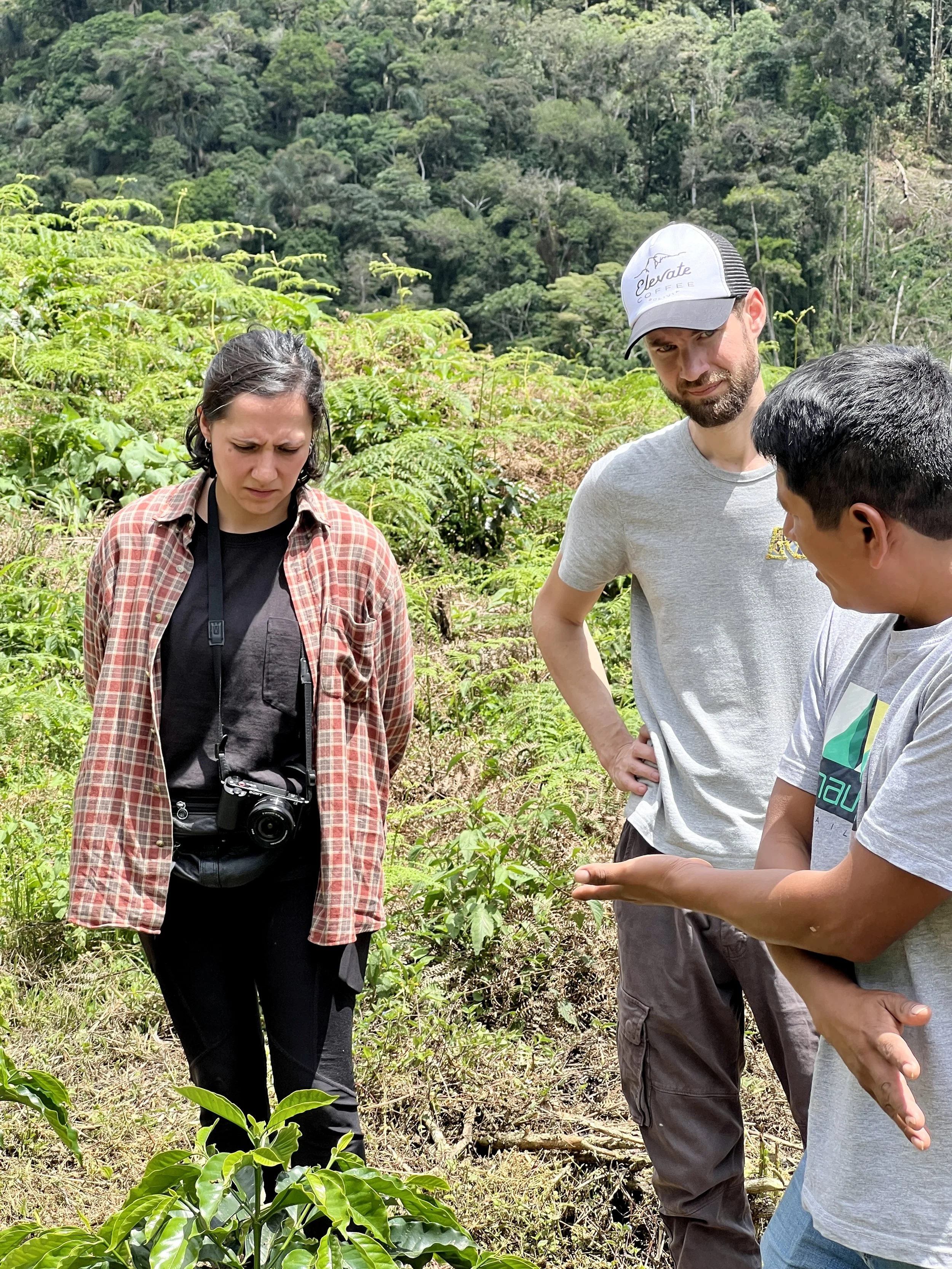Journey into Bolivian Coffee: Navigating Challenges, Celebrating Exceptional Quality (Part 1/2)
Moving back to Switzerland in 2022 marked the beginning of our annual pilgrimage to Bolivia every January. This voyage blends family reunions, work meetings at our sister roastery Elevate Coffee and coffee shop Supersymmetry, and, most importantly, a direct connection with our Bolivian producers. It's a concoction of vacation, family bonding, and work, accentuated by our yearly retreat—a time for reflection, recalibration, and the birth of innovative ideas propelling our business forward and fortifying connections with our customers and stakeholders. This year's visit, captured in this blog post, delves into the challenges faced during the 2023 coffee production, revealing both setbacks and exceptional outcomes.
A Challenging Harvest Year
Let me tell you, it was a year fraught with challenges. On top of the persistent specter of climate change, Bolivia faces a cyclical bad year for coffee every 8 to 10 years, coinciding with the El Niño phenomenon. 2023 was such a year, resulting in a 20%-40% reduction in production volume and an overall decline in quality. Early hints from our partner producers and the dry milling plant manager, a hub for specialty coffee producers, foreshadowed the impending challenges. The frustration mounted for our local team at the roastery as samples poured in since September, none meeting our accustomed quality standards. It wasn't until January that we received samples that sparked genuine enthusiasm during the cupping process.
Our overall assessment of the 2023 Bolivian harvest leans towards dissatisfaction, accompanied by a substantial "BUT." The exceptions we identified and sourced may be small lots, but they boast exceptional quality. The even more uplifting news is that these top picks originate from our core partner producers, individuals with whom we have fostered long-term relationships and engaged in a robust exchange of information for quality improvement. The more our journey unfolds, the more we appreciate the tangible impact we can have on our partners and the quality of the coffee we source. These mutually beneficial relationships, built on trust and a shared vision, set us apart from other specialty roasters, green coffee buyers, or online platforms attempting to "directly" connect producers with roasters. Such authenticity only emerges when ideals align with actions, and we fearlessly commit to making them work, without shortcuts or greenwashing.
A Journey to Caranavi: Adaptability in Action
In the unpredictable realm of countries like Bolivia, meticulous planning often succumbs to the whims of fate. Our anticipated journey to Caranavi, the heartbeat of Bolivian coffee production, vividly illustrated this truth. Originally, our united team, accompanied by two esteemed biologists exploring the avian life in coffee farms, aimed for a 5-day expedition, visiting three farms integral to this year's coffee sourcing. However, fate had a different script for us. In the days leading up to our departure, a series of challenges unfolded: a surge in yellow fever cases, political roadblocks across the country, relentless rain causing landslides and rendering roads impassable, and a dire fuel shortage immobilizing the very vehicles meant to transport us to the farms. The responsibility for the safety of our team ultimately rested on our shoulders, prompting a heartbreaking decision to call off the trip just one day before our scheduled departure. For us, these journeys are not mere safari-like excursions to take selfies; they are the essence of our business model, a genuine care that extends beyond marketing, forming the foundation for sourcing the finest Bolivian coffee. The anticipation of these meaningful interactions throughout the year made the decision even more poignant and emotionally charged than it would be under normal circumstances.
Drawing on our deep familiarity with Bolivia, spanning over two decades, allowed us to adapt swiftly and forge alternative plans. Although the process was far from straightforward, we managed to make it happen: a compact team of three, a whirlwind day in Caranavi, followed by a day at the dry mill in El Alto, and back to Cochabamba. An intense 48 hours, scrutinizing every step of the supply chain, from planting new coffee trees to packing our green coffee for export.
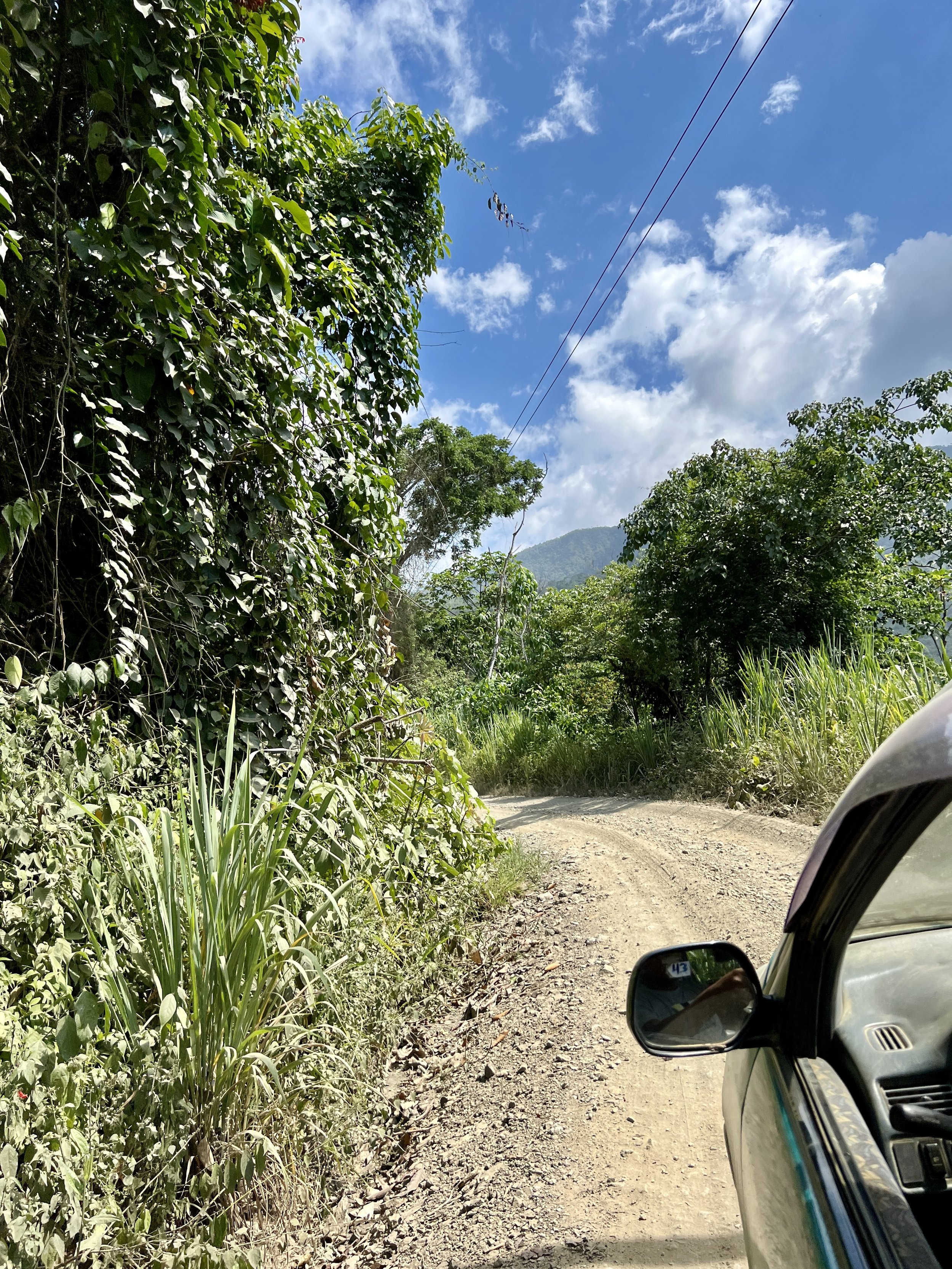
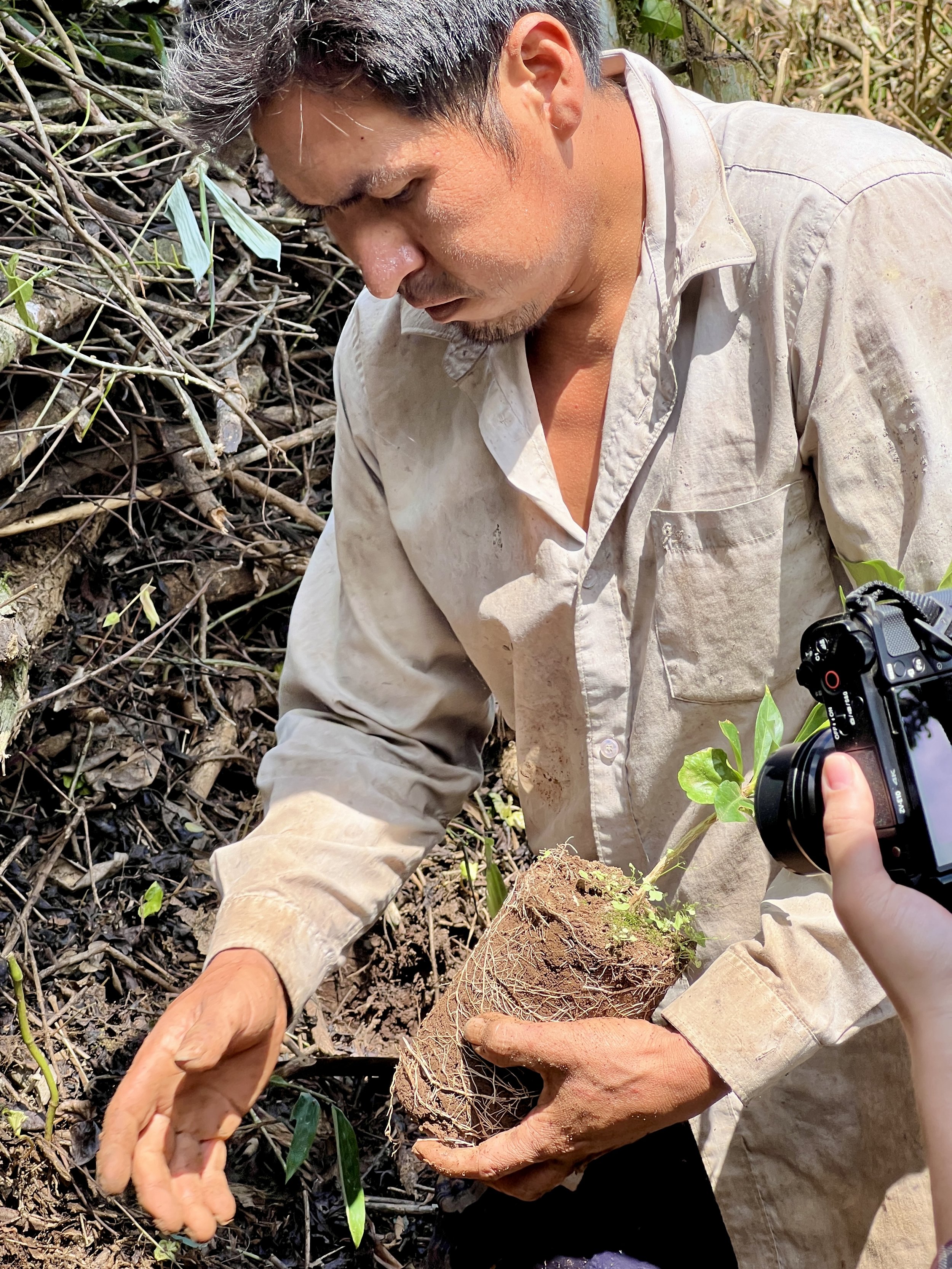
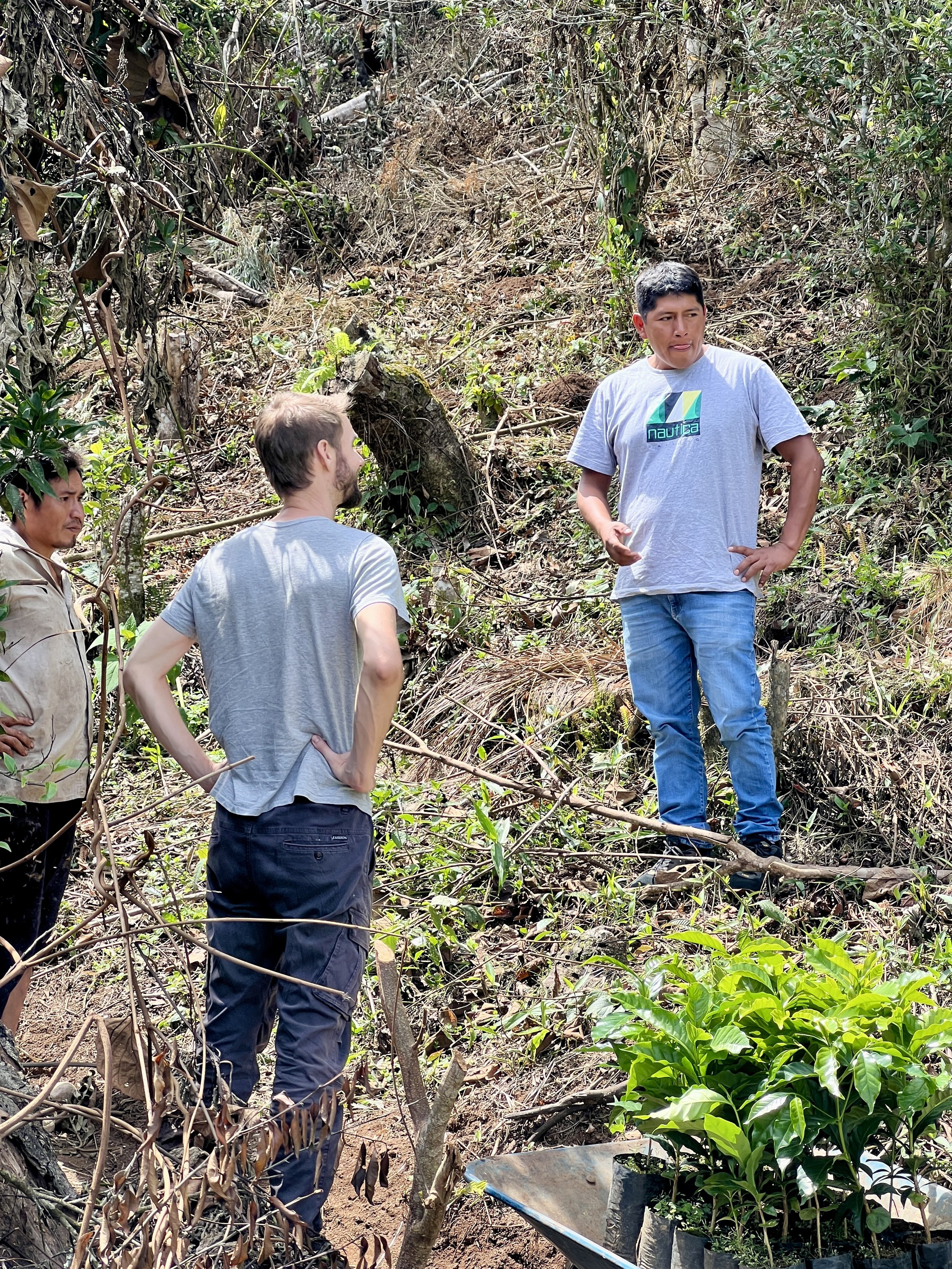
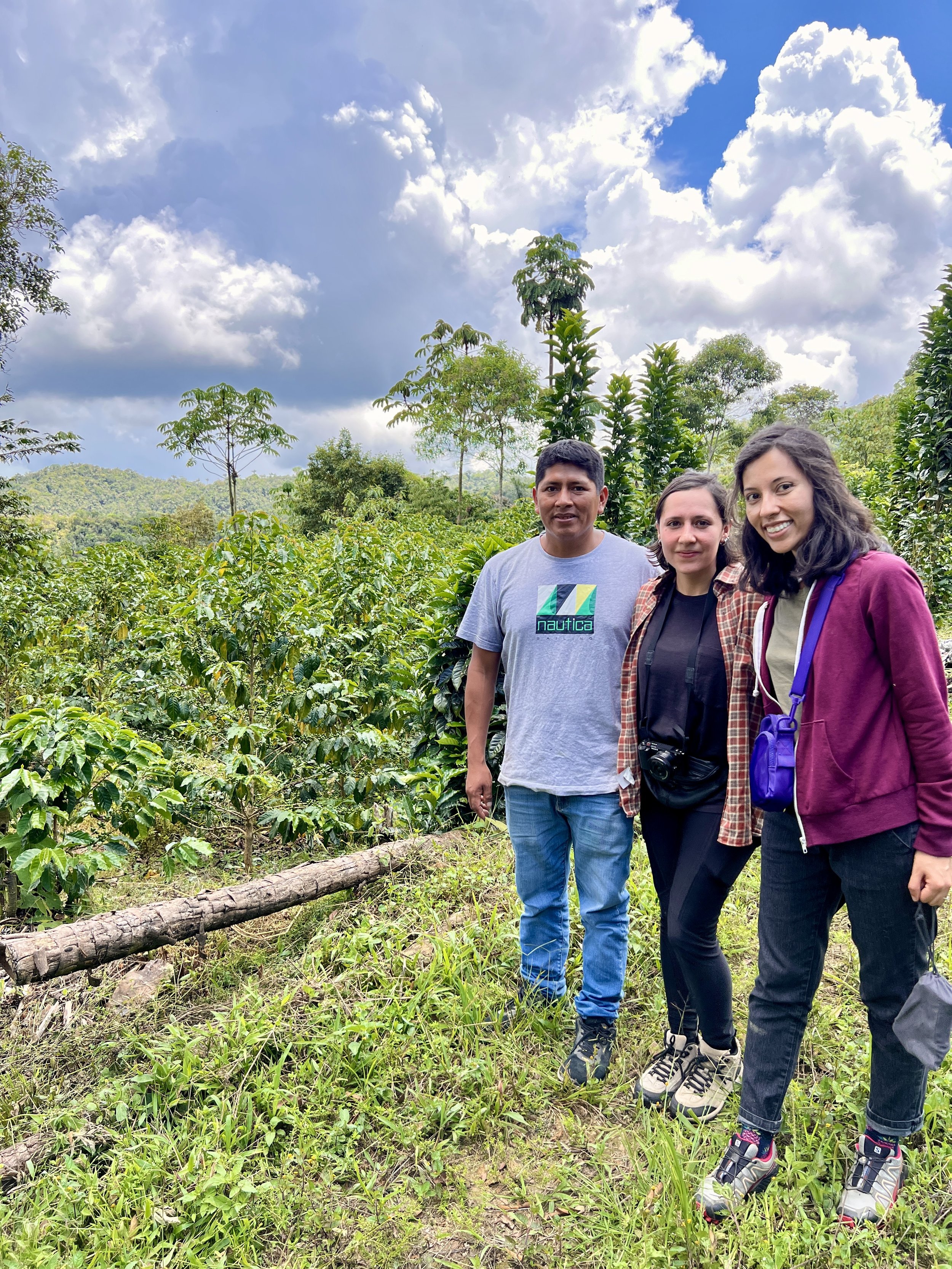
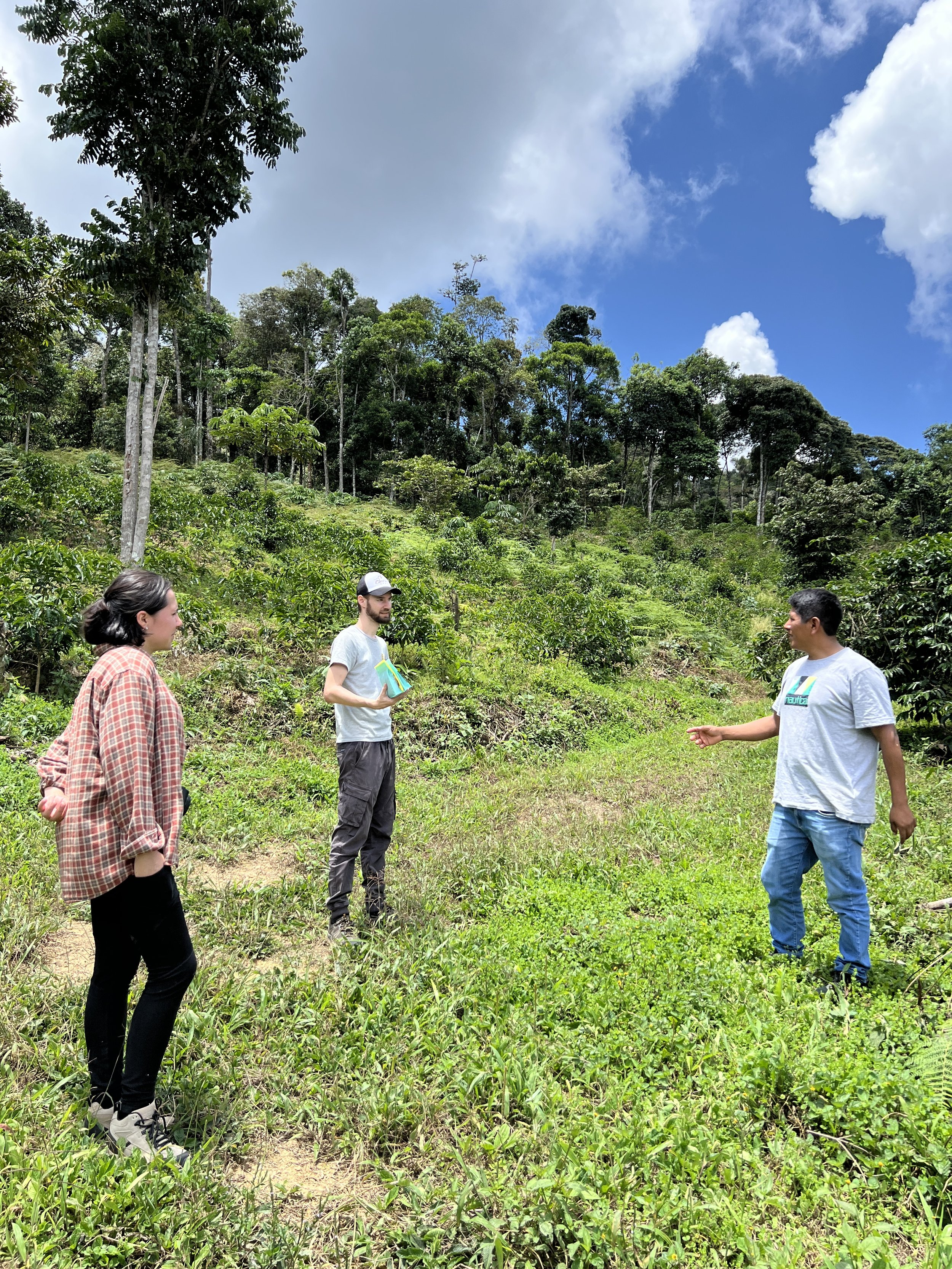
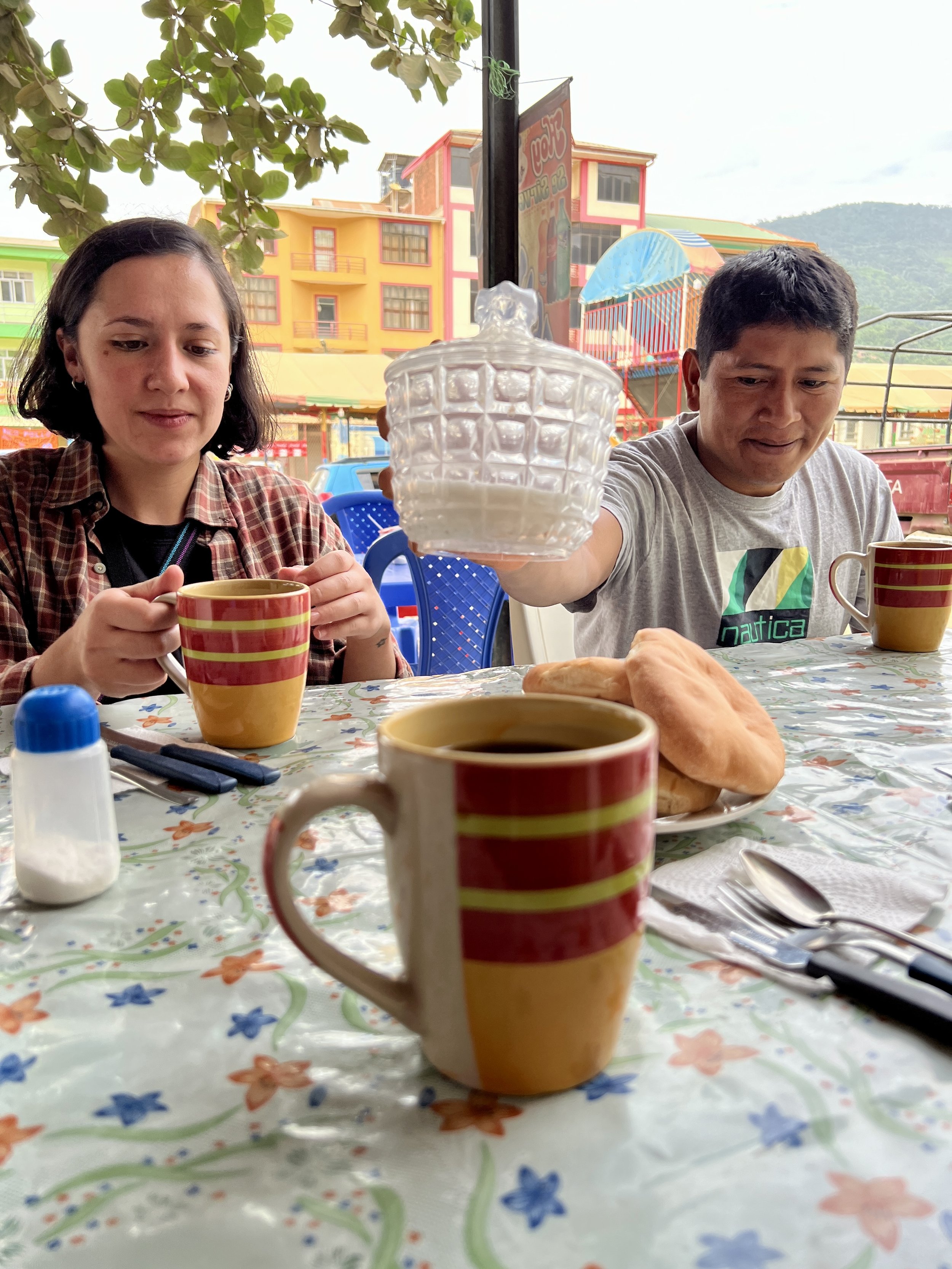
The journey to our producers is no small feat. Living in Cochabamba, we kickstart the adventure by flying to La Paz. To reach Caranavi in a single day, we rise at 4 am, rendezvous with Fernando from Finca Isabel at 5 am, and embark on an overland taxi journey from the outskirts of La Paz to the town of Caranavi, a 3.5-hour odyssey through impervious roads. In Caranavi, a traditional desayuno yungeño fuels us—a hearty plate of rice, meat, egg fried plantain, and, of course, coffee—sustaining us well into the late afternoon. The final leg involves another 1-1.5 hours, ascending to Finca Isabel at 1800 masl. Just before reaching the farm, we encounter Gonzalo, Fernando's neighbor, and his warm-hearted family. They graciously demonstrate the meticulous process of planting new caturra trees in a designated lot. Gonzalo, echoing Fernando's practices, employs the same agroforestry techniques on his own finca. Witnessing this shared commitment not only ensures the broader health of the ecosystem around Finca Isabel but also promises outstanding results in 2025 during the first harvest. As roasters, we champion these collaborative relationships between our top producers and their neighbors, aiming not only to spread sustainable production philosophies but also to impact a wider circle of families within the respective communities, granting them access to both local and international markets.
Talking with Producers: A Ripple Effect of Impact
Embarking on a journey often leads us to unexpected revelations, and our recent conversations with coffee producers unveiled a fascinating butterfly effect.
Our roasters Claudia & Yann talking Coffee with Fernando.
In the intricate world of coffee, peaberry beans were once considered a defect, relegated to the sidelines during the sorting process. Their density, causing a distinct reaction in the roaster, led to an uneven roast, resulting in 5-10 percent of the crop being downgraded. In 2019, driven by our conviction, we introduced a groundbreaking 100% peaberry bean coffee to the local market. The resounding positive feedback shattered the stigma, creating a newfound appreciation for this unique bean.
Our encounter with Deisy from Finca Senda Selvaje brought to light the transformative power of a name. By rebranding the peaberry from caracolito (snail in Spanish) to the English term "peaberry," the perception shifted dramatically. Deisy shared that this simple change elevated her peaberry's market value, allowing her to command premium prices. Moreover, our acknowledgment of her farm on our packaging revitalized their standing in the industry.
Delving deeper into the narrative, we discovered the ripple effect of our commitment to transparency. Finca Senda Selvaje, once ravaged by coffee rust, faced a hiatus in production. Struggling to regain their market share, they sold their beans through intermediaries, losing visibility. However, when partnering with us, whether through Muyu or our sister roastery Elevate Coffee, we make it a point to showcase the producers' integral role. Despite our modest volume, our brand association, synonymous with quality, becomes a launching pad for these producers to be recognized within the local market.
Before bidding La Paz farewell, we met with another dynamic duo, Reynaldo and Nelly. Their unwavering commitment to producing high-quality specialty coffee had earned them a respectable 85-86 points score, but they yearned for more. Following our suggestion to explore natural processes and different varieties, Reynaldo's experiment bore fruit. Winning this year’s prestigious Taza Presidencial with a 90+ point anaerobic natural processed catuaí marked a pivotal moment. While we didn't secure that specific lot, Reynaldo did entrust Elevate Coffee with an experimental batch, a 120-hour anaerobic fermented Catuaí, promising an even more captivating experience.
In these encounters, we realized the profound impact our choices can have on the lives of producers, not merely in elevating the quality of their beans but in rewriting the narrative of their farms.
Conclusion: Beyond Coffee, Creating Value
Our journey in Bolivian coffee is a continuous learning process, characterized by unconventional approaches that yield fruitful results. By fostering relationships built on mutual value, we bridge the gap between producers and consumers, creating a unique experience for coffee lovers worldwide. As you savor our Bolivian coffees, know that each cup is a product of dedication, collaboration, and the pursuit of excellence. Join us on this journey and taste the difference that true passion and commitment can make in every sip.
Next week, Part II will follow, make sure to check back to learn more about your coffee beans passing through the dry mill.

